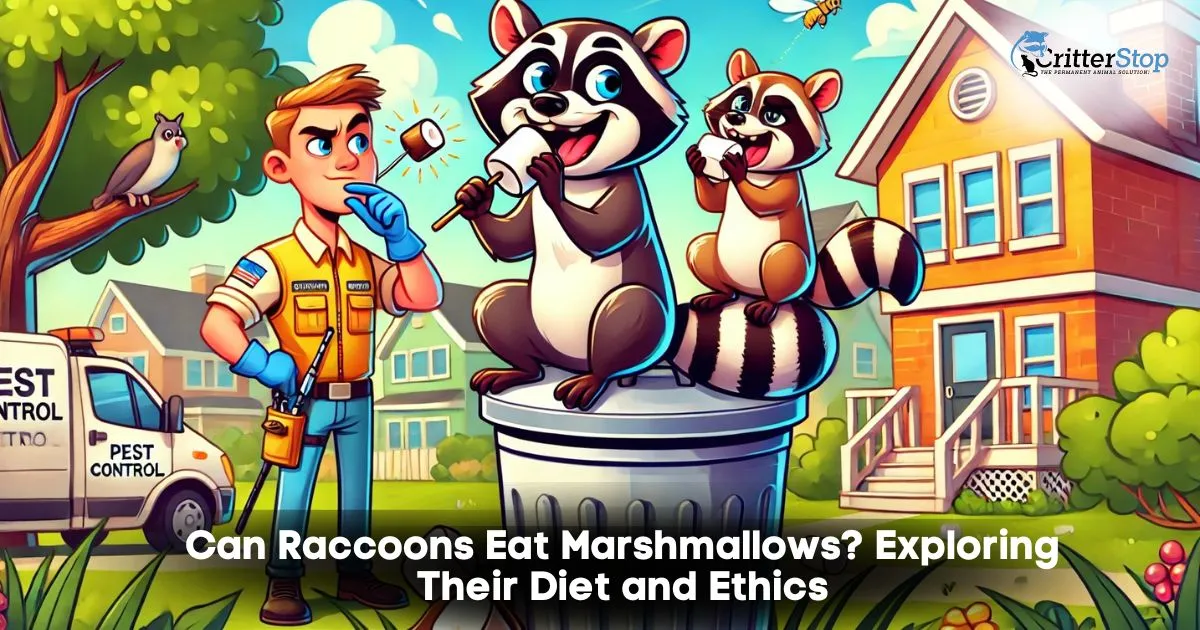
Raccoons, scientifically known as Procyon lotor, are fascinating creatures for their adaptability and omnivorous diet. These animals have successfully thrived in various environments, from rural woodlands to urban landscapes, by taking advantage of various food sources.
However, as human-raccoon interactions increase, questions arise about what foods are safe for raccoons to consume, particularly when it comes to processed human treats like marshmallows. In this article, we’ll explore whether raccoons can eat marshmallows, the impact of such a diet on their health and behavior, and the ethical implications of feeding wild animals.
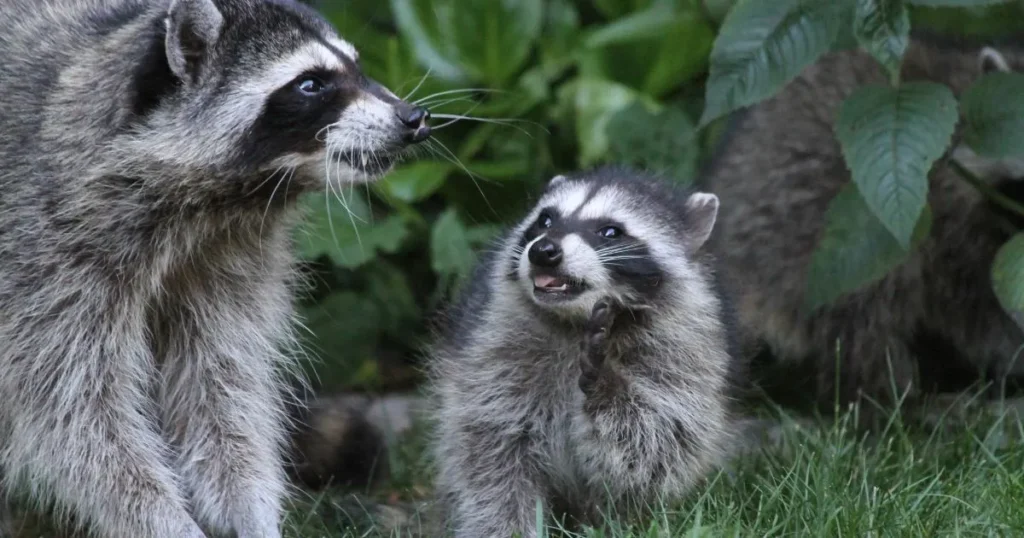
Raccoons are highly opportunistic feeders, which means they will eat almost anything available to them. In the wild, their diet typically includes:
This varied diet provides raccoons the essential nutrients they need to survive and thrive. In urban areas, however, raccoons are often seen foraging through garbage cans, compost bins, and pet food dishes, consuming whatever human food waste they can find. While they are highly adaptable, not all human foods are suitable for raccoons, and some can harm their health.
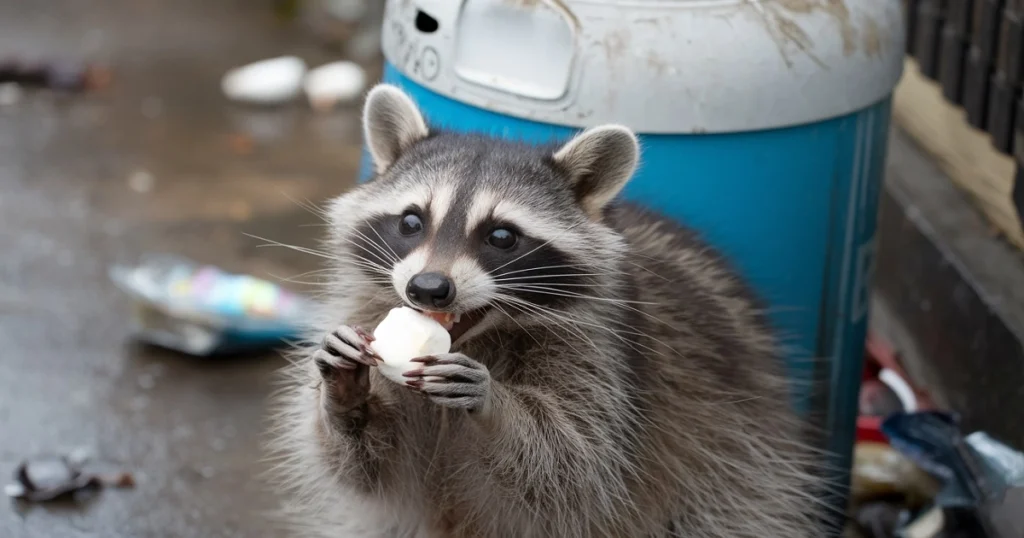
The answer is more complex than a simple yes or no regarding marshmallows. While raccoons can eat marshmallows, it doesn’t mean they should. Marshmallows mainly contain sugar, corn syrup, and gelatin, offering little nutritional value. Here are some key considerations:
Marshmallows provide nothing more than empty calories. They lack the essential vitamins, minerals, and proteins that raccoons require for a balanced diet. Feeding raccoons marshmallows can lead to several health problems:
Over time, a diet rich in sugary foods like marshmallows can severely compromise a raccoon’s health, leading to a decline in overall well-being.
Feeding marshmallows to raccoons can also lead to significant behavioral changes. Raccoons are brilliant animals that can quickly learn to associate humans with easy access to food. This learned behavior can result in:
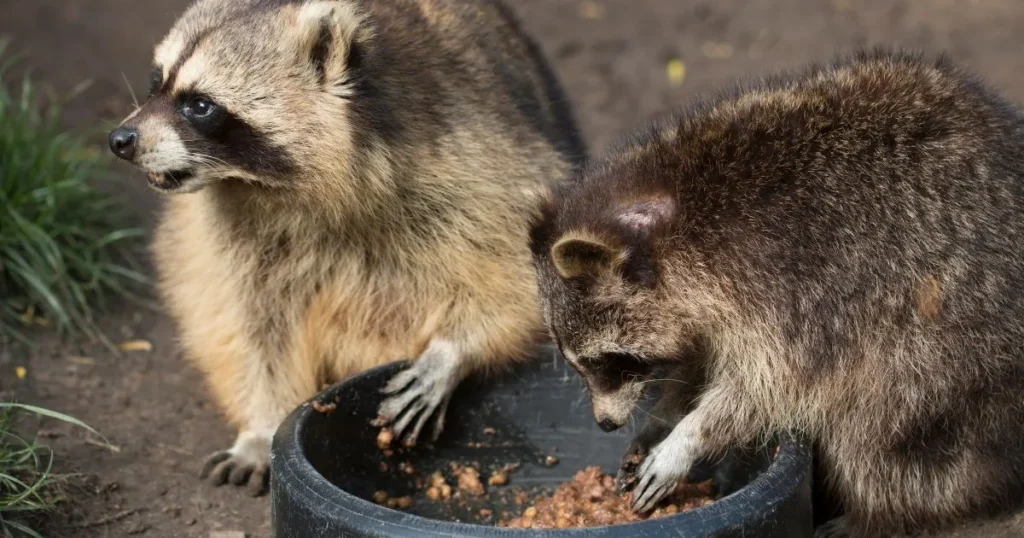
Feeding wildlife, including raccoons, carries significant ethical implications. While offering a sweet treat like a marshmallow might seem harmless, doing so can disrupt natural foraging behaviors and lead to a dependence on humans. This dependency can ultimately hinder a raccoon’s survival ability in the wild.
Moreover, feeding raccoons human food increases the risk of disease transmission. Raccoons are known carriers of raccoon roundworm and rabies, which can be transmitted to humans and pets through close contact. Encouraging raccoons to approach humans for food can increase the likelihood of these diseases spreading.
For those who enjoy observing wildlife, it’s essential to do so responsibly. Here are some tips for ethical wildlife interaction:
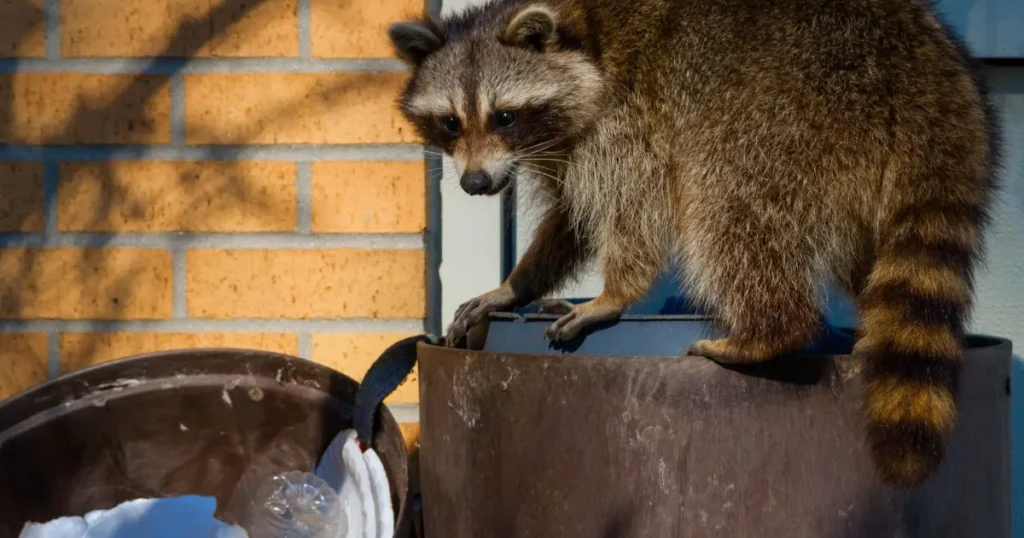
If you’re dealing with raccoons or other wildlife on your property, it’s crucial to address the issue humanely and effectively. Critter Stop, a professional wildlife removal company, specializes in humane and ethical wildlife management. Critter Stop provides services to safely and effectively remove unwanted wildlife from your property, ensuring that the animals and your home are protected.
If you suspect raccoons or other wildlife are causing problems on your property, don’t hesitate to contact Critter Stop. They offer a free inspection and consultation to assess the situation and provide the best possible solutions. Call Critter Stop at (214) 234-2616 today to schedule your free inspection and take the first step towards a wildlife-free home.
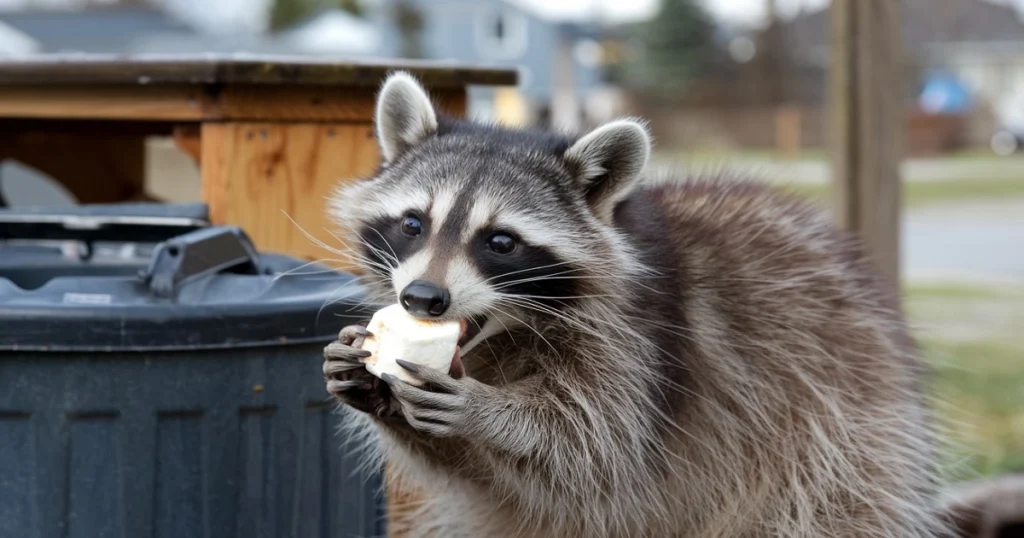
In conclusion, while raccoons can eat marshmallows, doing so is not in their best interest. Marshmallows offer no nutritional benefits and can lead to serious health and behavioral issues. As humans, it is our responsibility to interact with wildlife in a way that promotes their health and well-being. This includes avoiding the temptation to feed them unhealthy treats and instead focusing on creating environments that support their natural dietary needs.
By choosing to observe and interact with raccoons responsibly and by enlisting the help of professionals like Critter Stop when necessary, we can ensure that these fascinating creatures continue to thrive in their natural habitats without becoming dependent on human-provided food. Remember, responsible wildlife management starts with us.
Raccoons are notorious for their curiosity and willingness to try just about anything regarding food. However, not all treats are safe or suitable for these wild animals. As a responsible homeowner, it's crucial to understand the potential impacts of feeding raccoons, especially regarding sugary treats like marshmallows. Below, we’ve answered some common questions about raccoons and marshmallows to help you make informed decisions.
When you give raccoons marshmallows, they will likely eat them eagerly due to their sweet taste. However, this doesn't mean it's a good idea. Marshmallows are high in sugar and offer no nutritional value, which can lead to health problems in raccoons. Over time, consuming marshmallows can contribute to obesity, dental issues, and even diabetes, making it a harmful choice for these animals.
While raccoons may enjoy the taste of marshmallows, it’s not safe to assume that this makes them a good treat. Raccoons are opportunistic eaters; just because they like something doesn’t mean it’s healthy for them. Feeding raccoons marshmallows can encourage them to seek more human food, potentially leading to dependency and other adverse behavioral changes.
Yes, there are significant risks involved with raccoons consuming marshmallows. The high sugar content can lead to a range of health problems, including obesity and dental decay. Additionally, feeding raccoons human food like marshmallows can alter their natural foraging behavior, making them more reliant on humans and potentially more aggressive in seeking food sources.
Raccoons in urban areas may come across marshmallows more frequently, especially if they have access to human food waste or if people intentionally feed them. However, it’s important to discourage this practice. Regular consumption of marshmallows can disrupt their natural diet, lead to long-term health issues, and increase the likelihood of human-wildlife conflicts.
It’s a common misconception that raccoons can eat marshmallows without any problems. While they can physically eat them, this doesn’t mean it’s without consequences. The sugary nature of marshmallows is far from what raccoons would naturally consume in the wild, leading to health and behavioral issues if fed these treats regularly.
If raccoons eat marshmallows regularly, they are at risk of developing serious health problems. The most common issues include obesity, which can impair their ability to move and escape predators, and dental decay, which can make eating difficult and painful. Over time, this can lead to a decline in their overall health and make them more vulnerable to disease.
Yes, you should be concerned about giving raccoons marshmallows as a snack. While offering them a sweet treat might seem harmless, it’s important to remember that what’s enjoyable for humans can be detrimental to wildlife. Encouraging raccoons to eat marshmallows can lead to dependency on human food, resulting in negative interactions between raccoons and people.
Experts agree that raccoons will likely eat marshmallows willingly due to their sweet taste, but they also caution against feeding them these treats. Wildlife professionals emphasize that marshmallows are not a natural part of a raccoon’s diet and that feeding them can lead to health and behavioral issues. It’s always best to allow raccoons to forage for their natural foods rather than introducing them to human snacks.
At Critter Stop, we understand the importance of maintaining a healthy balance between wildlife and human activities. If you’re dealing with raccoons or other wildlife on your property, contact us at (214) 234-2616 for a free inspection. We specialize in humane wildlife removal, ensuring that your home and the animals are treated with the utmost care. Our fantastic reputation and great customer reviews online are a testament to the high-quality work and excellent service we provide. Let Critter Stop help you keep your property safe and critter-free.
Visit our Critter Library and learn more about our furry friends